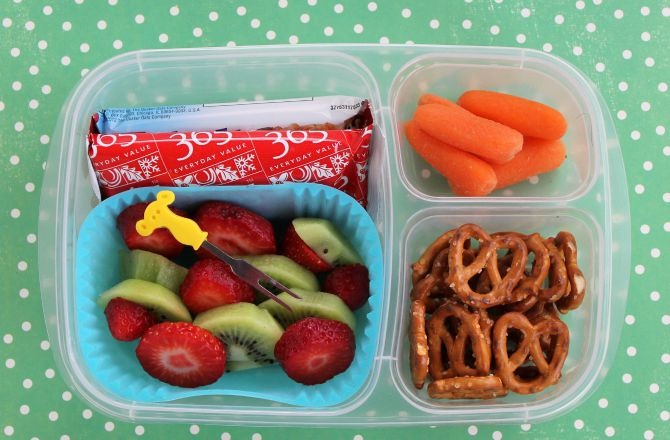Healthy Lunches Equal Healthy Minds
Obese children may experience immediate health consequences leading to cardiovascular disease (high cholesterol or high blood pressure), diabetes, strokes, bone or joint issues, and various other diseases. hildren are being taught poor eating habits at an early age, and are becoming addicted to foods that are high in fat, sugar, and sodium. Our bodies simply don't know how to process processed foods.
Click here for The 12 Worst Things You Can Pack for Your Kid's Lunch slideshow.
Encouraging children to develop healthy habits early in life, such as eating nutritious foods and engaging in physical activity, can bring lifelong benefits. Wellness in the Schools (WITS) introduces real whole foods at an early age to help kids develop healthier palates and to ensure they have enough energy to learn and make it through the rest of the school day.
With the last reauthorization of the Children's Nutrition Act in 2010, we saw the introduction of the Healthy, Hunger-Free Kids Act. Since the introduction, children have had increased access to fruits and vegetables in schools. We saw more whole grains and less sodium go onto their plates. Right now, some members of Congress are trying to reverse that change to appease a few larger corporate interest groups. We need to continue this improvement. It takes time for kids to embrace change, and educating them about the benefits of great health and nutrition is the key.
The time to advocate for change is now, and we currently have a once in a five-year opportunity to make improvements to programs that feed and educate millions of children from infancy through adolescence. The Child Nutrition Act governs the School Lunch and Breakfast Programs; the Special Supplemental Nutrition Program for Women, Infants, and Children; and other federal programs that provide food and nutrition education to children and families. In short, it will ensure that every child has year-round access to high-quality, nutritious food, maintain nutrition standards and support nutrition education, and increase programs, resources, and assistance to ensure easy access to these benefits.
The current bill expires on September 30, 2015. Thirty-two million kids nationwide rely on their school lunch program, and for most, that lunch may be the only hot meal they eat that day. All kids deserve a free lunch! More money for commodity foods in school meal programs will allow schools to purchase more healthful items, like fresh fruits and vegetables. This is also an opportunity to shape how kids — and grown-ups — will eat in the future. Teaching children bad eating habits means creating yet another generation of Americans who will have to break those habits; and, given what we now know about the effect of those habits on our health, that's nothing short of criminal.
To help, you can reach out to your local Congressperson via email, phone, or even in person to tell them you believe we need a strong national school lunch program. WITS is an active member of the New York City Alliance for Child Nutrition Reauthorization, and we have set up an easy way to contact your representative here. You can also sign the Food Policy Action's petition or help support school food via social media by following @WITSInSchools and @NYC4CNR, using the hashtag #CNR2015, or sharing photos of your work with kids and schools. You can even help out by finding out what your local school is serving for lunch and more about the programs, such as WITS, in your area so you can learn more about what can be done to provide a better learning day at your local school.
The accompanying slideshow is provided by fellow The Daily Meal editorial staff member Bridget Creel.
